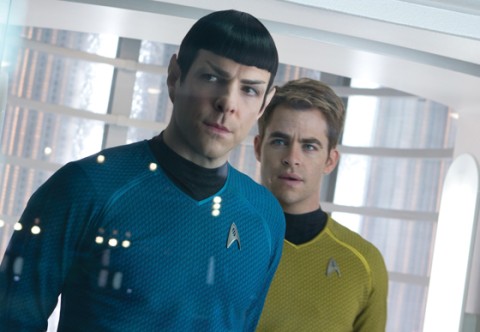Galactic hopes

You are writing about Star Trek for a religious magazine?” My friend’s question was not antireligious. He just knew that the Star Trek TV and film series have long been insistently nonreligious.
Part of the hope assumed in Gene Roddenberry’s original campy space series was that technology and intergalactic tolerance would triumph over parochialisms such as nationalism and religion. There were holdouts, of course—the Klingons and the Romulans and other primitives opposed the UN of the 23rd century. But they could be subdued by Captain Kirk’s hot-blooded American know-how, by First Officer Spock’s cold-blooded Vulcan logic and by the Enterprise’s phasers, photon torpedoes and warp speed. In the end Star Trek has not replaced religion, however, just repurposed it.
The opening sequence in the most recent installment, Star Trek: Into Darkness, proves my point about the religious importance of Trek, although it borrows more from Indiana Jones than Gene Roddenberry. A planet of primitives armed with bows and arrows is threatened by a volcano. The Enterprise is stopping the planet’s apocalypse by using the primitives’ superstition about a sacred text to lead them away from the volcano and then stopping the volcano’s eruption using “cold fusion” (the science is always pliable and nonspecific). A turn of events forces the Enterprise to violate the Prime Directive and reveal itself to a people who are not ready for such technology. As the opening comes to an end, the primitives have discarded their scroll in the dirt and drawn an image of the Enterprise. They proceed to gather around it for worship.




